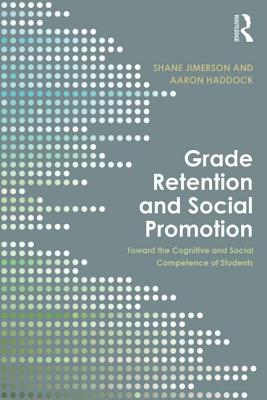Grade Retention and Social Promotion: Toward the Social and Cognitive Competence of Students
$47.66
Description
Each year nearly 2.5 million elementary school children are failed. Economic analyses suggest that this costs taxpayers over US$20 billion each year. Given the recent political momentum pushing for increased standards and accountability in our schools, actions toward an “end to social promotion” are occurring nationally. However, the research during the past 30 years fails to demonstrate the effectiveness of early grade retention as an academic intervention. In addition to the economic and structural problems created by ineffective focus on retention, this practice and policy also has significal educational repercussions for students.
Grade Retention and Social Promotion examines retention as an academic intervention, presenting perspectives on the long history of research regarding the efficacy of this strategy, as well as new thinking on the topic. Drawing on both socio-emotional and academic outcomes over the years, this book presents the first complete book account of the theory and practice behind grade retention, as well as the obvious and more subtle practical outcomes. For the very first time, this book brings together current research on this controversial practice affecting teachers and students nationwide.
Shane Jimerson is Professor at the University of California, Santa Barbara in the Department of Counseling, Clinical, and School Psychology in the Gevirtz Graduate School of Education
Aaron Haddock is currently completing a Ph.D. program in Counseling, Clinical, and School Psychology at the University of California, Santa Barbara
Editor: Jimerson, Shane, Editor: Haddock, Aaron
Topic: Education / Teaching
Media: Book
ISBN: 1138013706
Language: English
Pages: 192
Additional information
| Weight | 2 lbs |
|---|















Reviews
There are no reviews yet.